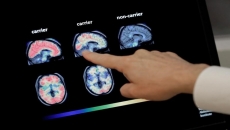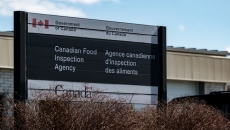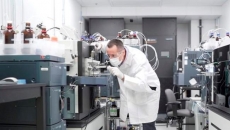BURNABY, B.C. - The British Columbia government says it is providing $750,000 to expand access to free menstrual products for people who need them and to help the United Way establish a task force to consider how to end "period poverty."
People facing financial difficulties can struggle to access menstrual products, and risk missing out on work, social events and daily life. We’re contributing $750,000 to @UnitedWay_BC to find ways to provide people access to the products they need. https://t.co/CdyXBpABfU pic.twitter.com/uofD5JbppU
— BC Government News (@BCGovNews) May 27, 2022
Nicholas Simons, the minister of social development and poverty reduction, says half of the people who menstruate in B.C. have struggled to buy the products they need at some point in their lives.
Very exciting announcement at our Lower Mainland office today. Hon. @NicholasSimons announcing a task force backed by $750k to help end period poverty #PeriodPromise pic.twitter.com/TAYEm0dXi2
— United Way British Columbia (@UnitedWay_BC) May 27, 2022
He told a Friday news conference that no one should have to stay home from work or school or choose between hygiene and essentials like food.
Asked about earlier calls for the province to make menstrual products available at locations such as schools, workplaces, pharmacies and government offices, Simons says there's a big difference between having the products available at home and having to access them in public spaces.
He says previous research has shown that limited access to menstrual products means people are likely to stay at home, and the task force will look at where the most effective locations might be to make products available.
Neal Adolph with the United Way says half of the funding that's intended to last for two years will go to the task force and the other half will support the organization's work to increase access to menstrual products across B.C.
In the last 5 years, UWBC has distributed more than 2 million free menstrual products to hundreds of community organizations around the province. We've been able to do this with the support of our donors and partners, and are grateful for their ongoing commitment. #PeriodPromise pic.twitter.com/nIps8VhFcW
— United Way British Columbia (@UnitedWay_BC) May 27, 2022
The period poverty task force is due to provide a final report in March 2024.
The task force will be chaired by Nikki Hill, who has previously worked on a provincially funded research project with the United Way looking at the impacts a lack of access to menstrual products can have on a person's life.
The new Period Poverty Task force will be chaired by @HillNikki who points out that tomorrow being #MenstrualHygieneDay, the Task Force which stems from research that UWBC & the province released in 2021, will highlight what BC is doing on a global stage #PeriodPromise pic.twitter.com/qHrFtIATkU
— United Way British Columbia (@UnitedWay_BC) May 27, 2022
"Before we started some of this work, we had no idea what a common problem it was for people in our communities," Hill told the news conference.
Thank you for joining us to announce the Period Poverty Task Force. With the support of provincial funding, the Task Force will be committed to ending period poverty in BC & providing access to menstrual products to those with financial barriers.#PeriodPromise pic.twitter.com/Zf6z0Kg33r
— United Way British Columbia (@UnitedWay_BC) May 27, 2022
The task force will look at creating equity for those people, she says.
“The work of UWBC to end period poverty and make menstrual products easier to access is another great example of how non-profits help make society better” @NikiSharma2 #PeriodPromise pic.twitter.com/k16VmgCcHv
— United Way British Columbia (@UnitedWay_BC) May 27, 2022
Students have had access to free menstrual products in the washrooms of B.C. public schools since 2019, the Ministry of Social Development says.






